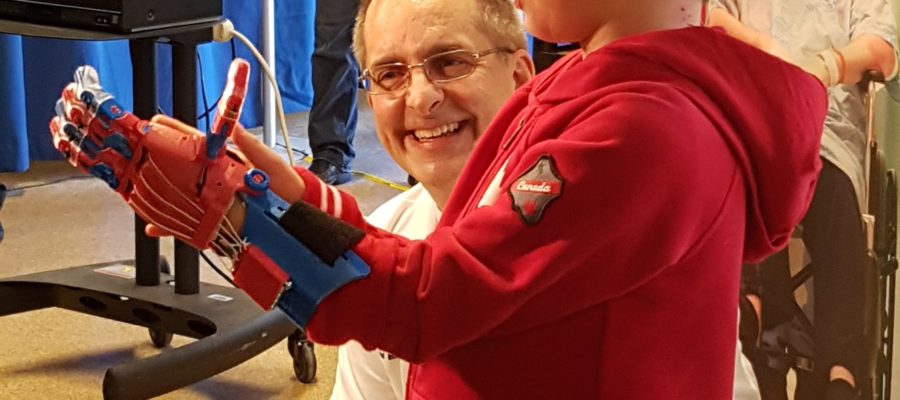Ottawa Hospital Opens First of its Kind 3D Printing Program in Canada
3D Printing News
3D printing continues to be an important tool in the delivery of personalized healthcare. Healthcare, by nature, is personal; no two people are alike, and the approach in developing treatment plans should be customized to meet the needs of individuals. However, sometimes this can be a costly endeavour, and our healthcare system has been designed to treat patients economically and efficiently versus individually. By leveraging technology, such as 3D printing, healthcare professionals are able to customize patient care while also meeting their obligations on cost.
The Ottawa Hospital is the first facility in Canada to embrace 3D printing technology and apply it to a variety of applications with the end goal of delivering more positive patient outcomes. Their vision is to integrate the technology into many different departments and applications such as prosthetics, radiology, cancer care, anatomy models, surgical guides, pre-operation planning, training models, research, and a few applications traditionally associated with 3D printing, such as jigs & fixtures, and rapid prototyping.
“3D modelling will allow surgeons to create detailed anatomical plans in advance of the patient arriving in the operating room,” says Dr. Frank Rybicki, Chief of Medical Imaging at The Ottawa Hospital and Chair of Radiology at the University of Ottawa. “This is about personalized medicine that reduces the need for invasive surgeries, lengthy anesthetics and ultimately improves outcomes at a reduced cost.”
 |
|
Dr. Frank Rybicki, chief of medical imaging at the Ottawa Hospital and David Chasse admire a 3D printed prosthetic hand. The hand was built on the Hospital’s Stratasys Connex3 3D Printer. |
“3D printing has been an emerging technology for some time in other fields, such as aerospace or the automotive field, and now it’s coming to medicine” noted Dr. Frank Rybicki, chief of medical imaging at the Ottawa Hospital and a global advocate for additive manufacturing in healthcare.
Personalized Patient Care
David Chasse lost four of his fingers in a motorcycle accident in June 2015. He had been fitted with prosthetics in the past but they were bulky and expensive but more importantly did not meet his individual needs. Using 3D design software Dr. Rybicki and his team were able to design a custom-fitted prosthetic that incorporates flexible materials in order for him to flex the fingers and pick up small objects. The device fits perfectly between his thumb and top of his palm and uses wrist motions to function.
“I’m able to grab things” he said. “I have everyday trouble grabbing just about anything, even with my other prosthetic”.
David’s previous prosthetic cost around $3200, making it difficult to afford without insurance. With 3D printing, his new prosthetic cost $200 and was designed and developed in less than a week.
David wasn’t the only one who had his life changed by 3D printing. Sebastian Chavarria, a previous recipient of an Iron Man style 3D printed prosthetic from the University of Ottawa the previous year was on hand to receive a brand new spider-man style device. His previous 3D printed prosthetic had broken, but with the on-demand capabilities of 3D printing it was simple and cost-effective to fabricate a new one. As Sebastian continues to grow and participate in the typical activities of a kid his age, he will require new 3D printed prosthetics. The technology will make it easy for him to have customized devices regardless of how much he grows.
 |
|
Sebastian Chavarria shows off his Spiderman inspired 3D printed prosthetic with Dr. Frank Rybicki, chief of medical imaging at the Ottawa Hospital. |
Partnering with Proto3000
The Proto3000 medical solutions team along with the assistance of Stratasys worked with the Ottawa Hospital for months in implementing this technology. The unit purchased, The Objet500 Connex3 3D Printer , is powered by PolyJet technology and is perfect for medical applications that required a high degree of accuracy and a range of material properties.
 |
|
Eyal Geiger, President at Proto3000, and Scott Rader, General Manager of Medical Solutions at Stratasys exhibit the full range of possibilities with 3D printing. |
“As a partner of the Ottawa Hospital, we look forward to exploring the range of possibilities that 3D printing presents, and push the boundaries of personalized patient care” said Reuben Menezes, Marketing Manager at Proto3000.
